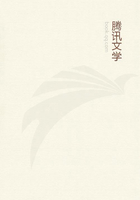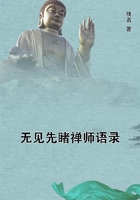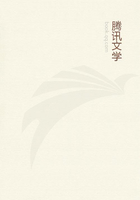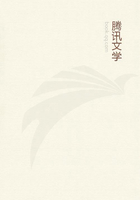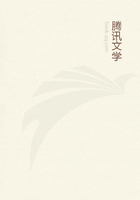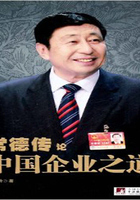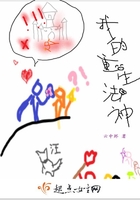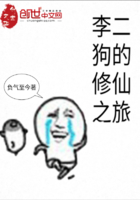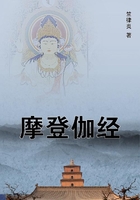This would indicate that we think of our free act as one which we execute of our own choice, in no servitude to chance or necessity or overmastering passion, nothing thwarting our will; the voluntary is conceived as an event amenable to will and occurring or not as our will dictates.Everything will be voluntary that is produced under no compulsion and with knowledge; our free act is what we are masters to perform.
Differing conceptually, the two conditions will often coincide but sometimes will clash.Thus a man would be master to kill, but the act will not be voluntary if in the victim he had failed to recognise his own father.Perhaps however that ignorance is not compatible with real freedom: for the knowledge necessary to a voluntary act cannot be limited to certain particulars but must cover the entire field.Why, for example, should killing be involuntary in the failure to recognise a father and not so in the failure to recognise the wickedness of murder? If because the killer ought to have learned, still ignorance of the duty of learning and the cause of that ignorance remain alike involuntary.
2.A cardinal question is where we are to place the freedom of action ascribed to us.
It must be founded in impulse or in some appetite, as when we act or omit in lust or rage or upon some calculation of advantage accompanied by desire.
But if rage or desire implied freedom we must allow freedom to animals, infants, maniacs, the distraught, the victims of malpractice producing incontrollable delusions.And if freedom turns on calculation with desire, does this include faulty calculation?
Sound calculation, no doubt, and sound desire; but then comes the question whether the appetite stirs the calculation or the calculation the appetite.
Where the appetites are dictated by the very nature they are the desires of the conjoint of soul and body and then soul lies under physical compulsions: if they spring in the soul as an independent, then much that we take to be voluntary is in reality outside of our free act.Further, every emotion is preceded by some meagre reasoning;how then can a compelling imagination, an appetite drawing us where it will, be supposed to leave us masters in the ensuing act? Need, inexorably craving satisfaction, is not free in face of that to which it is forced: and how at all can a thing have efficiency of its own when it rises from an extern, has an extern for very principle, thence taking its Being as it stands? It lives by that extern, lives as it has been moulded: if this be freedom, there is freedom in even the soulless; fire acts in accordance with its characteristic being.
We may be reminded that the Living Form and the soul know what they do.But, if this is knowledge by perception, it does not help towards the freedom of the act; perception gives awareness, not mastery: if true knowing is meant, either this is the knowing of something happening- once more awareness- with the motive- force still to seek, or the reasoning and knowledge have acted to quell the appetite; then we have to ask to what this repression is to be referred and where it has taken place.If it is that the mental process sets up an opposing desire we must assure ourselves how; if it merely stills the appetite with no further efficiency and this is our freedom, then freedom does not depend upon act but is a thing of the mind- and in truth all that has to do with act, the very most reasonable, is still of mixed value and cannot carry freedom.
3.All this calls for examination; the enquiry must bring us close to the solution as regards the gods.
We have traced self-disposal to will, will to reasoning and, next step, to right reasoning; perhaps to right reasoning we must add knowledge, for however sound opinion and act may be they do not yield true freedom when the adoption of the right course is the result of hazard or of some presentment from the fancy with no knowledge of the foundations of that rightness.
Taking it that the presentment of fancy is not a matter of our will and choice, how can we think those acting at its dictation to be free agents? Fancy strictly, in our use, takes it rise from conditions of the body; lack of food and drink sets up presentments, and so does the meeting of these needs; similarly with seminal abundance and other humours of the body.We refuse to range under the principle of freedom those whose conduct is directed by such fancy: the baser sort, therefore, mainly so guided, cannot be credited with self-disposal or voluntary act.Self-disposal, to us, belongs to those who, through the activities of the Intellectual-Principle, live above the states of the body.The spring of freedom is the activity of Intellectual-Principle, the highest in our being; the proposals emanating thence are freedom; such desires as are formed in the exercise of the Intellectual act cannot be classed as involuntary; the gods, therefore, that live in this state, living by Intellectual-Principle and by desire conformed to it, possess freedom.
4.It will be asked how act rising from desire can be voluntary, since desire pulls outward and implies need; to desire is still to be drawn, even though towards the good.
Intellectual-Principle itself comes under the doubt; having a certain nature and acting by that nature can it be said to have freedom and self-disposal- in an act which it cannot leave unenacted? It may be asked, also, whether freedom may strictly be affirmed of such beings as are not engaged in action.
However that may be, where there is such act there is compulsion from without, since, failing motive, act will not be performed.
These higher beings, too, obey their own nature; where then is their freedom?

